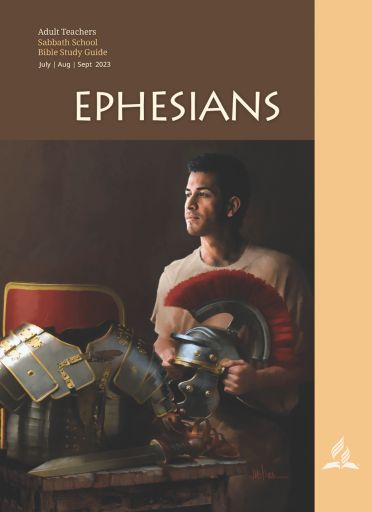
Ephesians: How to Follow Jesus in Trying Times
In the Epistle to the Ephesians, Paul tells us about the Ephesians themselves. Years after the exciting events of the early days of Christian mission in Ephesus, the Ephesians struggled with the significance of their Christian faith.
Paul, once the troubler of the economy of this fourth-largest city in the Roman Empire, is now sidelined and imprisoned. Writing from prison, he worries that the believers in Ephesus may “lose heart,” forgetting any active sense of what it means to be disciples of Jesus in the sophisticated, urban, and thoroughly pagan culture of Ephesus. Though his hearers are already Christians, Paul’s tone is one of recruitment. He seeks to reenlist them in the Christian faith, to reignite the fire of their devotion to Christ, and to resurrect the excitement of being part of God’s great enterprise in the world, the church.
Because the Christian faith is all about Christ, Paul radiates admiration and worship of Him. If wobbly Christian disciples are to regain their footing, it will be because they recapture their first love for Jesus and establish fresh trust in His grace and power. So, Paul highlights Christ’s exaltation in heaven above all the powers and deities that seek to attract the devotion of believers in Ephesus. Jesus is the goal of the divine plan for the ages, a plan in which believers, as the church, play an important role in God’s plans to unify all things in Christ.
As Paul seeks to draw believers in Ephesus into fresh devotion to their Lord, he does not dumb down the demands of Christian discipleship. He spells out in some detail what Christian behavior and community look like. Christians are called to Spirit-inspired, Christ-honoring, God-directed worship, which Paul illustrates again and again. A devotion to Christ impacts how one acts and speaks. To love Christ means to respect and value fellow believers. It means resisting the patterns of mean-spirited and sexually decadent behavior so rampant in their culture. It means, in our relationships within church and household, borrowing from the example of self-sacrifice offered by Christ. It means offering fellow citizens of Ephesus clear examples of a new pattern of human existence.
Paul spends a good deal of his letter expressing his excitement for this new pattern of what it means to be human through membership in God’s church. He is especially invigorated by the thought that God has joined estranged segments of humanity—Jews and Gentiles—as one in the church. In living out unity where hostility would be expected, they have an opportunity to exhibit the characteristics of God’s new society and the coming kingdom.
In pursuing the importance of being part of God’s church, Paul develops four metaphors for the church. Believers make up the body of Christ, demonstrating their devotion to Christ and their unity with each other. They are a living temple, built through the sacrifice of Christ on Calvary, in which God is worshiped. They are the bride of Christ, who look toward a grand marriage ceremony when the Bridegroom comes to claim them as His own. In a final metaphor that expresses Paul’s efforts to reenlist them in Christian faith, they are the army of Christ, which wages peace in His name, combating the forces of darkness in God’s strength as they look toward Christ’s return.
Ephesians, then, speaks especially to times like our own, in which the allure of the world and the passing of time threaten to dull Christian discipleship. It lifts up Christ and accents the significance of following Him as engaged, active members of His church as we live out the hope of His return. This quarter we have the privilege of listening prayerfully to Ephesians and experiencing anew the excitement of following Jesus in challenging times.
John K. McVay, PhD, is president and professor of religion at Walla Walla University in College Place, Washington, USA, where he has served since 2006.
© 2023 General Conference of Seventh-day Adventists®. All rights reserved. No part of the Adult Sabbath School Bible Study Guide may be edited, altered, modified, adapted, translated, reproduced, or published by any person or entity without prior written authorization from the General Conference of Seventh-day Adventists®. The division offices of the General Conference of Seventh-day Adventists® are authorized to arrange for translation of the Adult Sabbath School Bible Study Guide, under specific guidelines. Copyright of such translations and their publication shall remain with the General Conference. “Seventh-day Adventist,” “Adventist,” and the flame logo are registered trademarks of the General Conference of Seventh-day Adventists® and may not be used without prior authorization from the General Conference.
For questions and concerns about the Adult Bible Study Guide, please contact the Editor of the Bible Study Guide, Clifford R. Goldstein